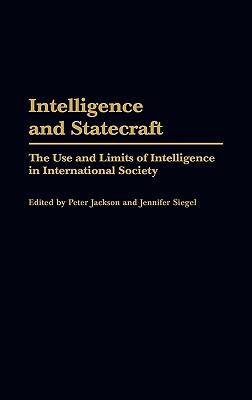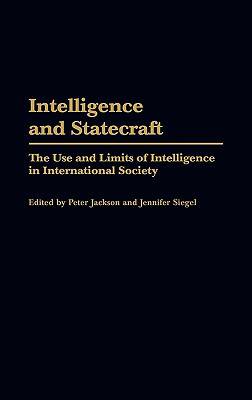
- Retrait gratuit dans votre magasin Club
- 7.000.000 titres dans notre catalogue
- Payer en toute sécurité
- Toujours un magasin près de chez vous
- Retrait gratuit dans votre magasin Club
- 7.000.0000 titres dans notre catalogue
- Payer en toute sécurité
- Toujours un magasin près de chez vous
Intelligence and Statecraft
The Use and Limits of Intelligence in International Society
Peter Jackson, Jennifer SiegelDescription
Intelligence has never been a more important factor in international affairs than it is today. Since the end of the Second World War, vast intelligence bureaucracies have emerged to play an increasingly important role in the making of national policy within all major states. One of the biggest problems within the contemporary thinking about intelligence and international relations is a lack of historical context. Observers routinely comment on the challenges facing intelligence communities without reflecting on the historical forces that have shaped these communities over the past two centuries. As presented in this volume, new perspectives on the evolution of intelligence services and intelligence practice over the past 200 years can only enrich ongoing debates over how best to reform national intelligence structures.
The practices of war and international politics were transformed by the conflicts of the French Revolution and the Napoleonic era. One of the most important outcomes of this transformation was the gradual emergence of permanent and increasingly professionalized intelligence services within the military and foreign policy establishments of the Great Powers. The contributions in this volume consider the causes and consequences of this trend as well as its impact on war, strategy, and statecraft. The rise of permanent intelligence bureaucracies has combined with technological progress to transform practices of intelligence collection and analysis that have remained essentially unchanged since the Roman era. Ultimately, however, the nature and limits of intelligence have remained constant, rendering intelligence little or no more effective in reducing uncertainty at the opening of the 21st century than in centuries past.Spécifications
Parties prenantes
- Auteur(s) :
- Editeur:
Contenu
- Nombre de pages :
- 302
- Langue:
- Anglais
Caractéristiques
- EAN:
- 9780275972950
- Date de parution :
- 01-05-05
- Format:
- Livre relié
- Format numérique:
- Genaaid
- Dimensions :
- 163 mm x 230 mm
- Poids :
- 580 g

Les avis
Nous publions uniquement les avis qui respectent les conditions requises. Consultez nos conditions pour les avis.






